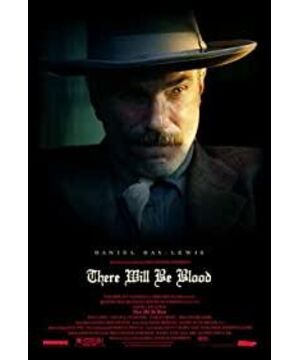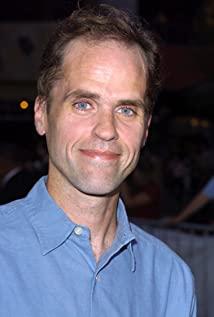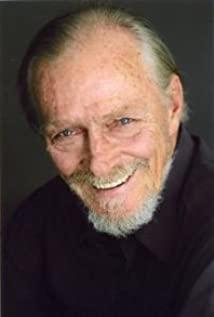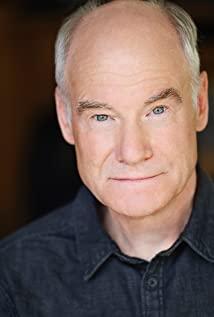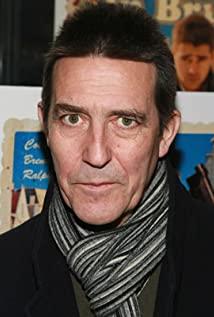Children, brothers, faith, superstition, guardianship, jealousy. The contradictory and opposite attributes of people are purified with high precision and condensed into two and a half hours of audio-visual language.
Structure: PTA is a director who is very good at playing with ring structures, more obviously in his early work. The ring structure can be understood as from the starting point to the starting point, and can also be understood as from the starting point to the end point. From the beginning to the end, it brings the audience a sense of epiphany. PTA is obviously the director who builds it to the end. The opening ten minutes of oil-cutting work scenes without lines makes the audience more focused on the vision. Daniel saw with his own eyes the co-workers were smashed to death, adopted the deceased's child, and finally Daniel smashed Eli to death with his own hands. The adoption of the son's departure formed a derailed ring. The sense of powerlessness that things are right and wrong, moisten things silently sneak into the cerebral cortex, leaving sighs and aftertastes.
Contrasts are everywhere: Paul and Eli are cast as twins with very different personalities. The figurative "one person with two sides" contrasts with the abstract "one person with two sides". The plot setting is more obvious. Bandy accepts Daniel's behavior of laying pipes on the land where he belongs. The only requirement is that Daniel needs to be baptized, and the person who baptized him, Eli, has always been the person Daniel despises (the mud puddles his mouth), Daniel Shame on the act of superstitious nonsense, but the maxim of the best interests of the businessman drove him to accept the humiliating process. In the last scene of "God and the Common People", Eli's profligacy led him to seek help from Daniel. Daniel also responded to Eli's humiliating way, exposing the false god through the mouth of "God". Even though the motives of Bandy's actions are not explained in the film, it is felt that Bandy, a fanatical superstitious, was instructed by Eli. Eli and Daniel's rivalry is always hidden in the film, even if Eli's appearance time is not long.
Character settings: All the characters in the process of appearing and exiting in the coming blood are connected with a firm red line, leading Daniel's emotional struggle on this road. The "fake son" with him is a bargaining chip and a family companion. The gas exploded, the fire lit up the sky, and the son was unexpectedly deaf. The shot of H•W rushing out of the fire with the rhythm of the drums made it appear not so nervous but a little excited. PTA is a director who is very good at using auditory language, and the sound settings in his works can often evoke emotions in an instant. The fire took its first major turning point. The lack of dialogue makes long-term companionship a burden. At this time, "true brothers" come to the door and fill the long-standing vacancy of blood kinship. At night, H•W used a fuse to try to burn off the false emotional connection between Paul and Daniel. Why H•W did it The front shot gave an obvious close-up hint. The person in the play didn't realize it yet, so he made a choice to protect the blood relationship and get rid of the "burden". "Brother" Paul, the bond of family affection, and the director has long made it clear in the camera that this deception
The director of the meeting used a door, which lies between the two, the difference between class, rich and poor, sincerity, falsehood, two worlds in the same scene. The beach memory scene is more bold and obvious, with the extreme contrast of light and shadow, happy memories in the sun, and helpless avoidance in the shadows. Daniel pointed a gun at "Paul", and "Paul" said that Paul died of tuberculosis (obviously not). The moment Daniel pressed the trigger, the blood was already there, and the source of emotion was broken, and he realized that he was still alone. It may be more the result of external factors that brought H•W back to him later.
The suppressed emotion of the last scene broke out, and Daniel's last line I'm finished. The video is over. This ending is very similar to Citizen Kane's ending, even with ten thousand years of wealth, step by step toward emptiness.
I can understand why some people would say that there will be blood in twenty years. Every shot is a solid amount of information, such as two pictures that explain the result of H•W and Mary's love and the inevitability of H•W leaving her father. H•W jumped down the steps and jumped out of the frame. Mary followed him and did the same action scene, to the scene of the wedding of the two, and then to the scene of negotiating with Daniel. The changes from the scene to the heart were too accurate.
Another point I think is that every supporting character in There Will Be Blood is not just a cutscene character that revolves around showing Daniel, the multi-faceted nature of their inner conflicting characters is completely exposed in the language of the short shots and the dialogue.
It is still the group portrait that PTA is good at. It is more restrained and restrained than the earlier works, and the effect is still astounding. DDL's handsome face is so convincing by PTA!
The Oscars in 2008 have No Country for Old Men and a bloody battle of the century! In 2022, the PTA and the Coen brothers were on the hook again. (It should have been given to the three best directors in Europe, and you can’t justify it if you don’t give it an Oscar! Speaking of which, my expectations for the licorice pizza are full again!)
View more about There Will Be Blood reviews


